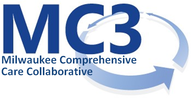DEFINITION
Culture is defined as the shared traditions, beliefs, customs, history, folklore, and institutions of a group of people. It is a system of rules that are the base of what we are and affect how we express ourselves as part of a group and as individuals.
Cultural Intelligence (CQ) is a person’s capability to function effectively in situations characterized by cultural diversity. CQ changes based on people’s interactions, efforts, and experiences. It is operationally defined as the integration or transformation of knowledge, information, and data about individuals and groups of people into all the helping services, utilizing approaches that match the individual’s culture.
Cultural Intelligence (CQ) is a person’s capability to function effectively in situations characterized by cultural diversity. CQ changes based on people’s interactions, efforts, and experiences. It is operationally defined as the integration or transformation of knowledge, information, and data about individuals and groups of people into all the helping services, utilizing approaches that match the individual’s culture.
A culturally competent system includes:
- Attaining the knowledge, skills, and attitudes to enable administrators and practitioners within systems of care to provide effective care for diverse populations, i.e., to work within the person’s values and reality conditions.
- Acknowledging the impact of life histories, life experiences, language, values, beliefs and customs, including traditional healing approaches on an individual’s recovery process, including treatment, policies, outreach efforts, and other service provision efforts.
The principles and activities of culturally and linguistically appropriate services should be integrated throughout an organization and system and undertaken in partnership with the communities being served.
Examples of Indicators:
- Availability of materials written in appropriate languages.
- Availability of appropriate interpretation services.
- Demographic constitution of staff reflect demographics of individuals served.
- Having culturally appropriate representation on board of directors or other community advisory boards for organization.
- Documentation of receipt of Culturally Intelligent trainings for all staff.
- Having a dedicated staff member in charge of Cultural Competence compliance.
- Use of Culturally Intelligent language in agency policies and procedures.
- Sensitivity to cultural intelligence in the environment of care (e.g., artwork, disability accessibility, reading material).
- Knowledge of the Health Care Language Services Implementation Guide.
- Self-Assessment of CQ.
- Individuals’ satisfaction with the agency’s cultural intelligence/competence is assessed through surveys, focus groups, in-depth interviews, and consumer advisory panels.
Assessments:
- Self-Assessment Checklist for Personnel Providing Behavioral Health Services and Supports to Children, Youth and their Families: 40-item checklist intended to heighten awareness and sensitivity of personnel to the importance of cultural diversity and cultural competence in human service settings; provides concrete examples of values and practices that foster such an environment and includes question in three domains: (1) physical environment, materials, and resources, (2) communication styles, and (3) values and attitudes.
- SAMHSA TIP 59: Several assessments potentially useful for assessing cultural competence (Appendix C, pp. 259 – 275); examine three resource areas: (1) counselor self-assessment tools, (2) guidelines and assessment tools to implement and evaluate culturally responsive services within treatment programs and organizations, and (3) forms addressing client satisfaction with and feedback about culturally responsive services.
- Cultural Competence Self-Assessment Questionnaire (CCSAQ): Two versions, one for use with direct service providers and the other for administrative staff; helps child- and family-serving agencies assess cross-cultural strengths and weaknesses to design specific training activities or interventions that promote greater competence across cultures; designed to assess four dimensions: attitude, practice, policy, and structure.
